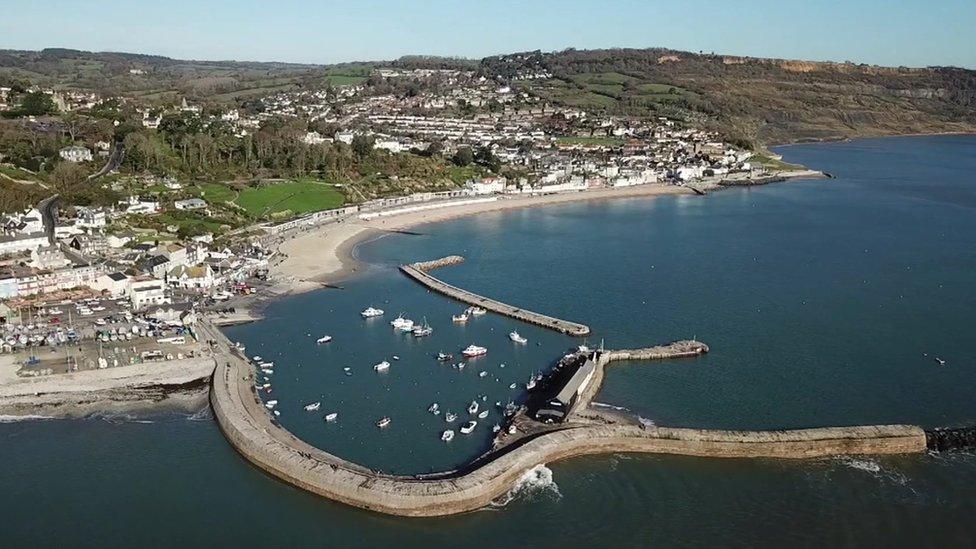Bones of Jurassic pliosaur found in Abingdon museum drawer
- Published
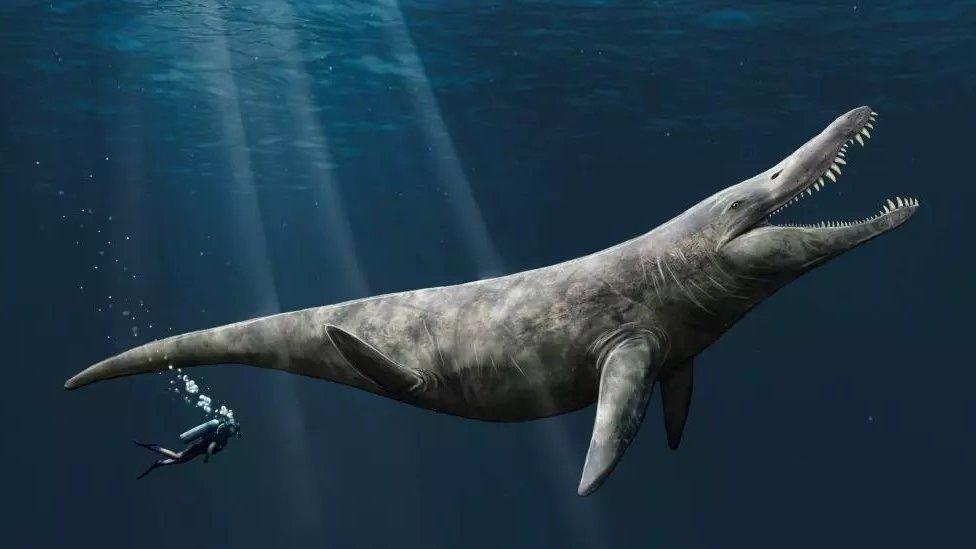
An artist’s impression of the pliosaur by Megan Jacobs, University of Portsmouth
Fossilised bones from a gigantic sea creature that lived 150 million years ago have been found in a drawer in a museum.
Pliosaur remains were discovered by University of Portsmouth palaeontologists at Oxfordshire's Abingdon County Hall Museum.
The vertebrae were first found during excavations at a farm near Abingdon.
Scans on a backbone found the reptile was between 9.8m (32ft) and 14.4 (47ft) long.
Prof David Martill and PhD student Megan Jacobs unearthed the remains by chance during a visit to the museum to photograph an ichthyosaur skeleton.
Ms Jacobs said: "Dave opened the drawer and there was a huge backbone in it - it was dinner-plate sized.
"We got it out had a look and concluded it wasn't a dinosaur but a huge marine reptile."
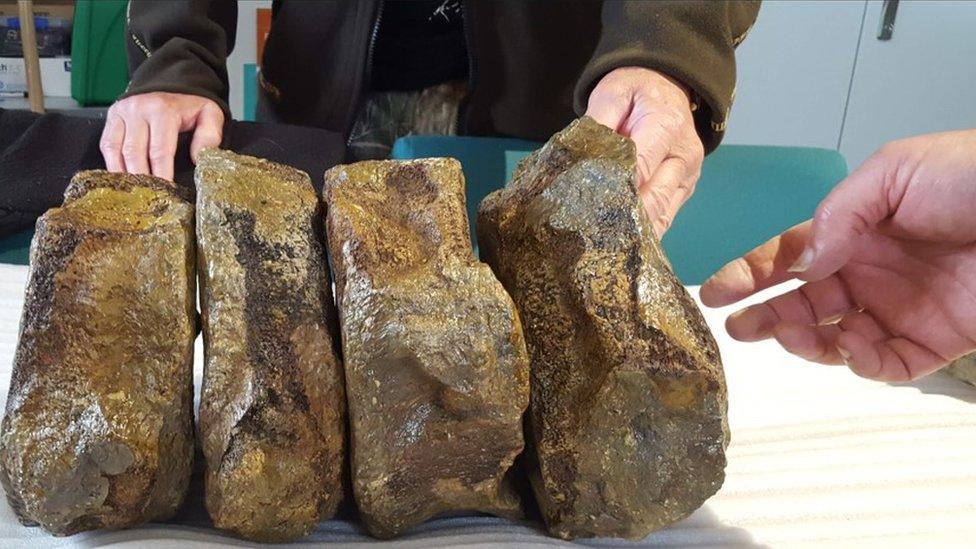
Four vertebrae from the skeleton were found at the museum
'Banana-sized teeth'
The museum curator revealed the museum had three more vertebrae from the skeleton in storage. "They had no idea that these were ginormous [bones] for this type of animal.
"It had a mouth full of enormous banana-sized teeth - you wouldn't have wanted to go swimming in the late Jurassic seas."
Twice the size of a killer whale, Prof Martill said the fearsome animals were swimming "in the seas that covered Oxfordshire 145-152 million years ago".
He said: "They were at the top of the marine food chain and probably preyed on ichthyosaurs, long-necked plesiosaurs and maybe even smaller marine crocodiles, simply by biting them in half and taking chunks off them.
"We know they were massacring smaller marine reptiles because you can see bite marks in ichthyosaur bones in examples on display in The Etches Collection, external in Dorset."
A paper detailing their immense discovery is published in Proceedings Of The Geologists' Association, external.

Follow BBC South on Facebook, external, Twitter, external, or Instagram, external. Send your story ideas to south.newsonline@bbc.co.uk, external
Related topics
- Published1 September 2022
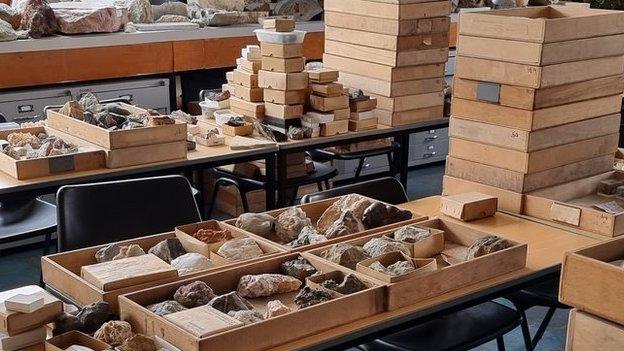
- Published3 November 2022
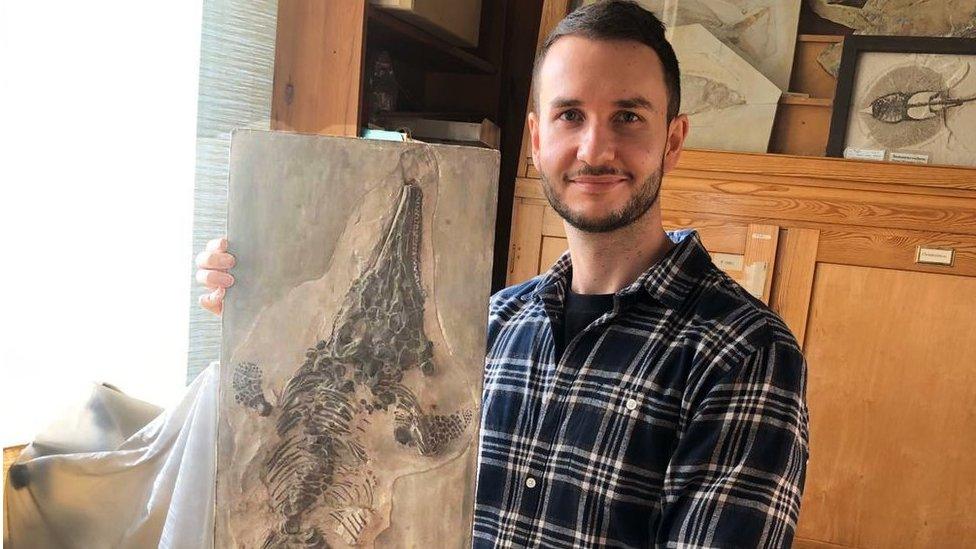
- Published17 March 2023
